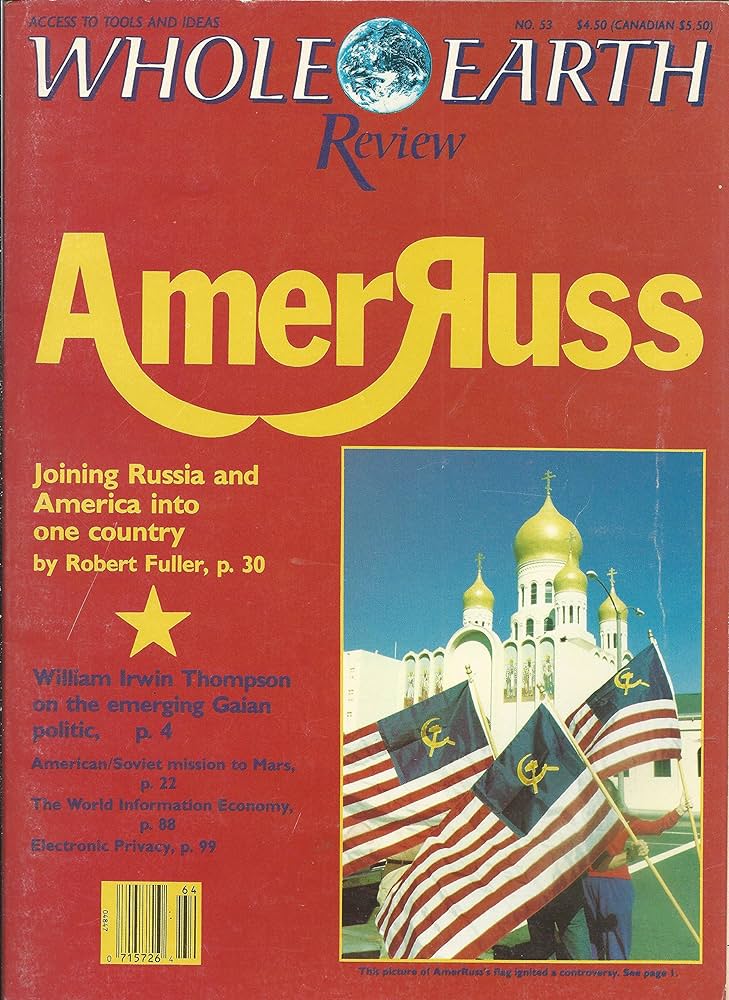Whole Earth Review (Prior revision dated Saturday 16 September 2023 03:16:50 -- @178)
Whole Earth Review, originally known as CoEvolution Quarterly, was a publication that emerged from the legacy of the Whole Earth Catalog magazine. It aimed to provide readers with in-depth analysis, diverse perspectives, and thought-provoking content on topics related to science, technology, ecology, and cultural trends.
Origin and Evolution
Whole Earth Review Magazine was first published in 1985 as a successor to CoEvolution Quarterly, which was initially created as a supplement to the Whole Earth Catalog. CoEvolution Quarterly focused on perspectives and ideas beyond the scope of the catalog, gradually transforming into an independent publication.
Content
The magazine featured articles, essays, interviews, and reviews that covered a wide range of subjects, encompassing alternative energy, biodiversity, social justice, art, and futurism. Whole Earth Review Magazine aimed to challenge conventional thinking and stimulate dialogue on emerging issues and trends shaping the world.
Contributors and Influences
Whole Earth Review Magazine served as a platform for renowned authors, scientists, activists, and thinkers to share their insights and expertise. Notable contributors included Stewart Brand, founder of the Whole Earth Catalog, as well as well-known figures like Buckminster Fuller and Howard Rheingold. The magazine's content often explored the intersections of ecology, technology, and social change.
Legacy and Impact
Whole Earth Review Magazine played a crucial role in disseminating alternative perspectives and inspiring critical thinking. It influenced various fields, including environmentalism, sustainability, and the digital revolution. The publication's dedication to diverse viewpoints and intellectual depth ensured it remained a significant source of inspiration for those seeking alternative visions for a better future.
Discontinuation
Whole Earth Review Magazine ceased publication in 2003 after an influential run of almost two decades. However, its legacy and ideas continue to resonate within contemporary discussions regarding sustainability, cultural evolution, and the exploration of new possibilities.{{Categories}}